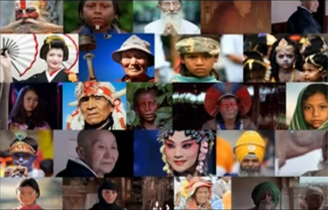37 C/5 Approved – Programme and Budget
Major Programme III
Social and human sciences
03001 The work of the Social and Human Sciences Sector will support inclusive social development, foster intercultural dialogue for the rapprochement of cultures and promote ethical principles with a foresight approach, which constitutes Strategic Objective 6 of the draft Medium-Term Strategy for 2014-2021 (draft 37 C/4).
03002 Mobilizing knowledge to enable social transformations conducive to social inclusion and cultural pluralism, with a foresight approach will allow addressing in a coherent, holistic and innovative manner the multiple challenges of societal development and equity as well as mutual understanding in a globalizing and increasingly digitally divided environment.
03003 To create new synergies, to introduce a focused and forward-looking approach and to enhance effective delivery, social transformations, intercultural dialogue and foresight will be addressed within Major Programme III (MP III) in a multidisciplinary and intersectoral manner. Support will be provided to Member States in developing innovative inclusive policies to accompany and anticipate social transformations, to respond to the challenges arising from the development of knowledge societies, to stimulate thinking and understand the dynamics at work, to facilitate proactive responses incorporating ethical decision-making and to foster intercultural dialogue. UNESCO will continue building on the longstanding experience on the science-policy interface through the well-established intergovernmental Management of Social Transformations (MOST) Programme – so as to strengthen links between research, policy-making, practice and society.
03004 The social and ethical dimensions of science and technology are central to UNESCO’s mandate, with a priority concern for the most vulnerable segments of society. In this regard, bioethics identifies and addresses the ethical dilemmas that scientific advances and their application may pose to the integrity and rights of human beings and communities, both for present and future generations. In this context, through the bioethics programme, UNESCO will continue to provide capacity-building to Member States, promoting international standards in bioethics, including UNESCO’s normative instruments. The Organization will continue to support the development of national policies in this domain through the establishment of national bioethics committees, and through education, professional training and awareness- raising using the media. IGBC, IBC and COMEST will support the development of ethical frameworks to support science for social inclusion and sustainable development.
03005 MP III will also play a house-wide coordination role for the implementation of the operational strategy on youth, annexed to the 37 C/4 and 37 C/5. In all its fields of competence, UNESCO will provide upstream policy advice for the development or review of transversal and inclusive public policies on youth with the equal participation of young women and men. These policies should be in line with national priorities and implemented through an integrated and youth needs-sensitive analytical approach.
03006 As a tool for development, community-building and social inclusion, sport is a means of increasing social capital especially among young people. Furthermore, a behaviour change in terms of increasing physical activity and diet is a fitting answer to the increasingly sedentary lifestyles of young people. Major Programme III Social and human sciences 37 C/5 Approved – Major Programme III 132 UNESCO will contribute to international efforts to tackle doping in sport through the administration and monitoring of the International Convention against Doping in Sport. 03007 MP III will also provide the lead in ensuring that all UNESCO programmes apply a human rights-based approach. This entails that they will be guided by relevant human rights standards and conventions in UNESCO’s fields of competence and by principles such as participation, equality, non-discrimination, accountability and the rule of law. 03008 Taking account of the shared and cross-cutting objectives and modalities summarized above, MP III will structure its work along three Main lines of action
Address: 81, Laiguangying West Road, Chaoyang District, Beijing, China
Zip Code: 100021
Tel: 86-10-64966526
Fax: 86-10-64969281
E-mail: administration@crihap.cn
NEWSLETTER
Leave us your e-mail address, we'll let you know about current events.


